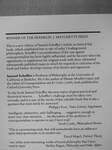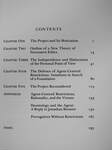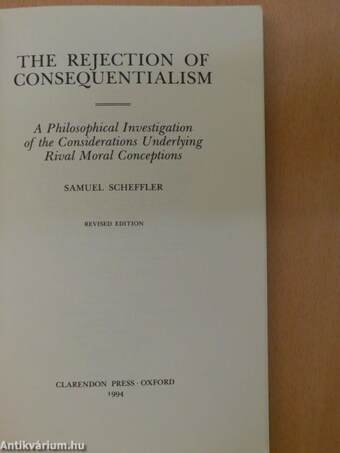1.062.077
kiadvánnyal nyújtjuk Magyarország legnagyobb antikvár könyv-kínálatát

VISSZA
A TETEJÉRE
JAVASLATOKÉszre-
vételek
The Rejection of Consequentialism
A Philosophical Investigation of the Considerations Underlying Rival Moral Conceptions
| Kiadó: | Clarendon Press |
|---|---|
| Kiadás helye: | Oxford |
| Kiadás éve: | |
| Kötés típusa: | Ragasztott papírkötés |
| Oldalszám: | 196 oldal |
| Sorozatcím: | |
| Kötetszám: | |
| Nyelv: | Angol |
| Méret: | 22 cm x 14 cm |
| ISBN: | 0-19-823511-9 |
naponta értesítjük a beérkező friss
kiadványokról
naponta értesítjük a beérkező friss
kiadványokról
Fülszöveg
WINNER OF THE FRANKLIN J. MATCHETTE PRIZE
This is a new edition of Samuel Scheffler's widely acclaimed first book, which established him as one of today's leading moral philosophers. Scheffler's reconsideration of the case against consequentialism has been highly influential, and he has now taken the opportunity to supplement the original work with three substantial subsequently published essays in which he responds to criticisms of the book and further develops various of its themes and arguments.
Samuel Scheffler is Professor of Philosophy at the University of California at Berkeley. He is the author of Human Morality (1992) and the editor of Consequentialism and Its Critics (1988), both published by Oxford University Press.
'In this book Samuel Scheffler discusses topics of great practical and theoretical interest. . . . Scheffler's challenge must be taken very seriously, and it is one of the merits of this valuable book that it asks a question that must surely be answered.'... Tovább
Fülszöveg
WINNER OF THE FRANKLIN J. MATCHETTE PRIZE
This is a new edition of Samuel Scheffler's widely acclaimed first book, which established him as one of today's leading moral philosophers. Scheffler's reconsideration of the case against consequentialism has been highly influential, and he has now taken the opportunity to supplement the original work with three substantial subsequently published essays in which he responds to criticisms of the book and further develops various of its themes and arguments.
Samuel Scheffler is Professor of Philosophy at the University of California at Berkeley. He is the author of Human Morality (1992) and the editor of Consequentialism and Its Critics (1988), both published by Oxford University Press.
'In this book Samuel Scheffler discusses topics of great practical and theoretical interest. . . . Scheffler's challenge must be taken very seriously, and it is one of the merits of this valuable book that it asks a question that must surely be answered.'
Philippa Foot, Times Literary Supplement
'intelligent, substantive, and challenging . . . suggestive enough to merit very close attention his discussion of the problems of consequentialism is superior to any I have read.'
Sarah Conly, Philosophical Review
'This is a penetrating study that will undoubtedly have an influence quite disproportionate to its modest size.'
David Mapel, Political Theory
'one of the most interesting works of moral philosophy that I have read in years' Shelley Kagan, Philosophy and Public Affairs Vissza













